“Under duress, we don’t rise to our expectations; we fall to the level of our training.” Bruce Lee
Everyone that’s played music knows stress; stage fight, nervousness, pressure. This is GOOD stress (known as ‘eustress’) because it pushes you to your next level of your potential. It’s a part of the game! This is why we embrace it, and say nervousness is good. It means you are excited, and you care about what you are doing. But how do you use this energy to fuel the performance instead of debilitate it?
You can’t simply THINK your way out of the stress, it’s more effective to decide on the body language to use beforehand. The mind can influence the body, but the body can influence the mind FASTER. A quick way to snap the brain and body into STATE is with cues. These are rituals to signal you into action without thought. It could be anything from using a certain pen, arranging your pillows a certain way, or a morning exercise routine. Choose your daily rituals to cue your brain you tap into your best state. This works so much better than trying to THINK yourself out of FEELING a certain way. It’s normal to feel doubtful, anxious, and even obsessed with the performance coming up, mulling it over and over in your mind. Triggers like deep breathing and so much more will keep you on track. (There’s a great book by Mason Currey called ‘Daily Rituals For Artists’ that details cues used by writers, musicians, and artists of all kinds). It’s not about what you do right before you drum though. The body language of confidence starts the moment you wake up! Every small choice you make matters, because it sends a signal to yourself. You want to let yourself know YOU’VE GOT THIS. Focus is finite, you only have so much to use during the day so don’t waste it on email, news, and conversations that don’t matter. DELETE all extra stress from a performance day, or any day, in choices like ‘what do I wear’? My closet is pretty boring because I use what’s called a ‘capsule’ wardrobe, filled with many versions of the same thing so I don’t waste precious decision power, focus, and energy on deciding what to wear. Not everyone uses the same techniques, but the process is the same. Find what works for YOU. How do you cue yourself to be ON for performance game day? Everything matters: what you eat, mantras (inner and outer dialogue you say to yourself), and your daily rituals. Music playlists are powerful. You’ll always see athletes before a game getting into the zone with headphones on, jamming to a meticulous personalized custom playlist. (You can search my name on Spotify and check out my own ‘game day’ AWC (absolute world class) playlist).
Give away any chance of it being PERFECT and surrender. Don’t think, rely on your training and just DO it. There comes a point were it’s no longer about trying to play it well, but just to GET TO THE END. People will feel effort and emotion more than rigid execution. FOCUS ON THE FINISH. Your training has been done. Trust it. This is where OVER PREPPING helps you. If you think you need to play the song five more times, then actually triple that and play it fifteen more times. Play the song in as many ways you can think of, being slightly uncomfortable so you can be ready for any situation. Record yourself. Do it 100X more than you think you need to. Get the reps! There’s no magic to genius, it’s really a reps game, repeating it over and over and over again. What is the training in drumming? This is the two pillars of movement: the Moeller stroke and the Freestroke, coming from your natural position. By having a daily practice plan reinforcing these to your brain and muscles, when the pressure comes your body will KNOW what to do by shear repetition. The Moeller and Freestroke and infinite variations on these techniques train you to use REBOUND and MOMENTUM to your advantage, which is the antithesis to TENSION. The ‘Fight, Flight, or Freeze’ survival mechanisms of our ‘ancient brain’ the amygdala is to clench up and shallow breathe, the opposite of what you want to you in performance. Daily practice of the natural position, deep breathing, and exercises incorporating the Moeller and Freestroke will sharpen your tools of utilizing rebound and momentum to keep you ready for any performance situation. (If you want to go deeper on this, check out my free video series ‘The Technique String’ which focuses on tools for your drumming with this foundation). You WILL be nervous but when you start playing you will be free of any tension, which only gets in our way of expressing the performance we are capable of. Drumming IS exciting, so when we merge our training to embrace this and express our best selves it leads to unforgettable experiences on the path of drumming and life!


